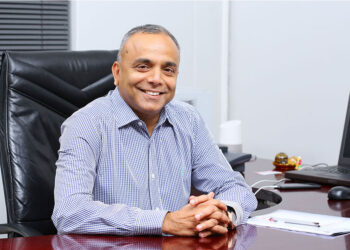- Tsaone Segaetsho
Absa Bank Botswana Managing Director, Keabetswe Pheko-Moshagane, said infrastructure remains the backbone of any economy, as it powers industries, connects communities, and creates opportunities for generations.
Pheko-Moshagane was speaking at the opening of the Absa Botswana-sponsored Private Equity Forum held yesterday in Gaborone. The forum focused on how to leverage the pension fund industry for national infrastructure development, foster economic growth, and create long-term value for beneficiaries.
She noted that Africa faces a well-documented infrastructure gap that requires innovative financing solutions. Pheko-Moshagane said pension funds, with their long-term investment horizons and substantial capital pools, are uniquely positioned to bridge this gap.
She highlighted Absa Botswana’s increasing participation in driving infrastructure development over the years. “In just the last two years, Absa Botswana has disbursed more than P2 billion to both large-scale enterprises and SMMEs, enabling them to participate in infrastructure development projects,” she said.
“These funds have supported a wide range of impactful projects, including the construction of a private clinic and medical laboratory, the building of inroads in various villages, and the implementation of water reticulation systems in major settlements,” added Pheko-Moshagane.
She emphasised that pension funds are not merely savings for retirement but can have a broad impact on long-term economic growth. The theme for the forum was ‘Fostering Sustainable Economic Growth by Leveraging on Evolving Alternative and Private Investment’.
In his keynote address, Vice President and Minister of Finance Ndaba Gaolatlhe said the theme resonates with the aspirations of the ‘New Botswana’, as it seeks to unlock the untapped potential within the country’s borders.
“For far too long, developing nations, including our own Botswana, have been conditioned to look outward for solutions. Yet, within our own solutions, among our own people, lies a pool of patient capital—pension funds—that can be harnessed to write a different story. Pension funds don’t just represent savings but dreams—dreams of teachers, engineers, public servants, citizens who have served with quiet dignity and now deserve a return that is both secure and transformational,” said Gaolatlhe.
The Vice President and Finance Minister said it is time for Botswana to unlock domestic capital, to use it as a lever for inclusive infrastructure development, and to shift from dependence to dominion.
Speaking on the challenges of investing in infrastructure assets, Debswana Pension Fund (DPF) CEO Thato Norman explained that the returns on such investments are typically lower than those from other asset classes.
Norman noted that infrastructure assets inherently have a fixed tenure, often lasting 30 years or more. “They also need to be maintained and refurbished over time, which presents challenges,” he said. “The lifespan of infrastructure assets diminishes and they must be restored periodically, yet the returns remain relatively modest compared to other investment types.”
“Infrastructure, by nature, is also illiquid. When you trade infrastructure, you struggle to find takers, so it is not easily tradable,” added Norman.
However, Norman also reminded the audience of the benefits of investing in infrastructure. He said DPF was the first institution to invest in such projects, citing their investment in Gaborone Private Hospital. He added that the Covid-19 pandemic underscored the importance of infrastructure investment.
“The benefits of investing in infrastructure lie in the ability to diversify intelligently, targeting asset classes that offer low or even negative correlation,” he said.
Renowned economist Dr. Keith Jefferis, who was part of the panel discussion, stated the need for private sector investments in national and public infrastructure projects. He explained that, unlike in the past when the government had ample savings at its disposal and automatically channelled funds into public infrastructure, the situation has now changed.
“Government, especially the current one, is operating with lower levels of national savings, balance of payments deficits, and budget deficits. It no longer has the financial capacity it once had to fund development projects,” said Jefferis.
“We can no longer expect to rely on government as the sole or primary provider of public infrastructure. We must bring in private investors for these projects,” he stressed.
Jefferis further noted that mobilising private savings to complement public savings and revenues in financing national projects is of paramount importance.










